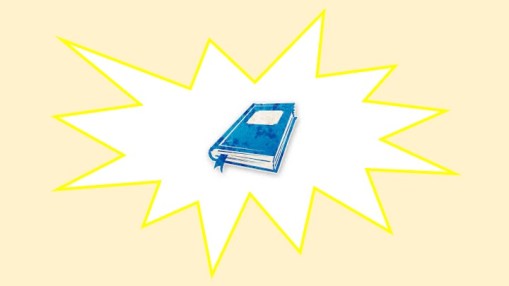A librarian and The Librarian
I’ve been playing a game called Blood on the Clocktower since the summer of 2022. First online, and more recently (since June 2024) in person. By now, I’ve played well over 150 games, and have even travelled up from Kent to York last summer for a weekend devoted to it. So it’s safe to say that I really love it.
It’s a social deduction game, a concept that’s much easier to explain now with the phrase “well, it’s a bit like The Traitors”. Which it is. And isn’t. There’s a minority of evil players, who know who each other are, working against the uninformed majority of good players who have to hunt them down. All of this is overseen by a Storyteller, someone who is there to make sure the game runs according to the rules and that everyone has fun.
There are a tonne of games out there like this, the best known being Mafia/Werewolf. So what is it about this game that I have fallen in love with? I’ll potentially get into this a bit more in another post, but the short version is:
- It’s a team game, that everyone is part of. You’re still an active part of the game if you “die”.
- Everyone has a special role. These are randomised, so the game is different every time.
- Most importantly, the community. The people that I play with regularly are brilliant, as is the wider community across the country and indeed the world. We love this game, and we want everyone to have fun playing it.
After playing for a while, I developed a bit of a side quest. The basic version of this game is called Trouble Brewing, which features 22 playable roles. Around a third of my games have been Trouble Brewing games, and the roles from it have popped up in plenty of others as well, so I have gained some decent experience playing as each of them. Apart from one.
The game contains a character/role called the Librarian. And despite my day job, it eluded me. I mentioned this early on with the group I started playing with in person, and soon it became a regular thing to ask “are you the Librarian?”, and to commiserate with me whenever I wasn’t. Which was every time. Storytellers claimed to be crossing their fingers that it would come my way, without success. The game involves deception, and I never pretended to be the Librarian either. It had become a thing. The Singing Librarian simply cannot be The Librarian. The game wouldn’t allow it.
During one of my early in-person game nights, we played a “blind” game, where the Storyteller (on this occasion, Ben) chose our roles, and we did not know what they were. Of course, the opportunity to make me the Librarian was impossible to resist, and so that’s what I was. Amusingly, the nature of how that role is played meant that I was probably the only person in the room who knew their role from the start of the game. Fun though that was, it still didn’t count. I had still never become the Librarian through natural means.
And then came my first games of 2026, three and a half years after I first played. On our second game, I reached into the bag and pulled out the felt-backed token which would tell me my role. And there it was. Librarian. The object of my quest.
I kept a straight face, gave the same reaction I always do and passed the bag to the next player. When storyteller Laura collected our tokens, I avoided eye contact. But when she woke me up in the game’s first “night” to give me my librarianic information, we exchanged silent looks of amazement and delight.
As the game progressed, it became clear that I wasn’t the only one excited. The first person I told literally jumped up and down with excitement. Others congratulated me, and word spread quickly. At the end of the game, when Laura broke down exactly what had gone on, there was a bigger reaction to the news that I had indeed been the Librarian than to anything else.
The Librarian is not one of the most powerful roles. It has a useful job to do, though, and enabled me to help keep another good character alive. It was delightful, though, that the game seemed to have changed its mind at last. And even more delightful was everyone playing in to the bit. I am far from the only person with a profession represented in the game, even within our group. It didn’t really matter. And yet it did.
For me, the reactions everyone had (including people who were really disappointed to have missed this momentous occasion) helped me to know that I was (am) an accepted part of the group. We get together to plot, scheme and lie on a regular basis. But more importantly, we get together to laugh, to enjoy ourselves, to have fun. Blood on the Clocktower has brought so much delight into my life. And although my quest for the Librarian token is complete, I know that I will be playing games with these people for as long as I possibly can, and that it will always be a joy.








